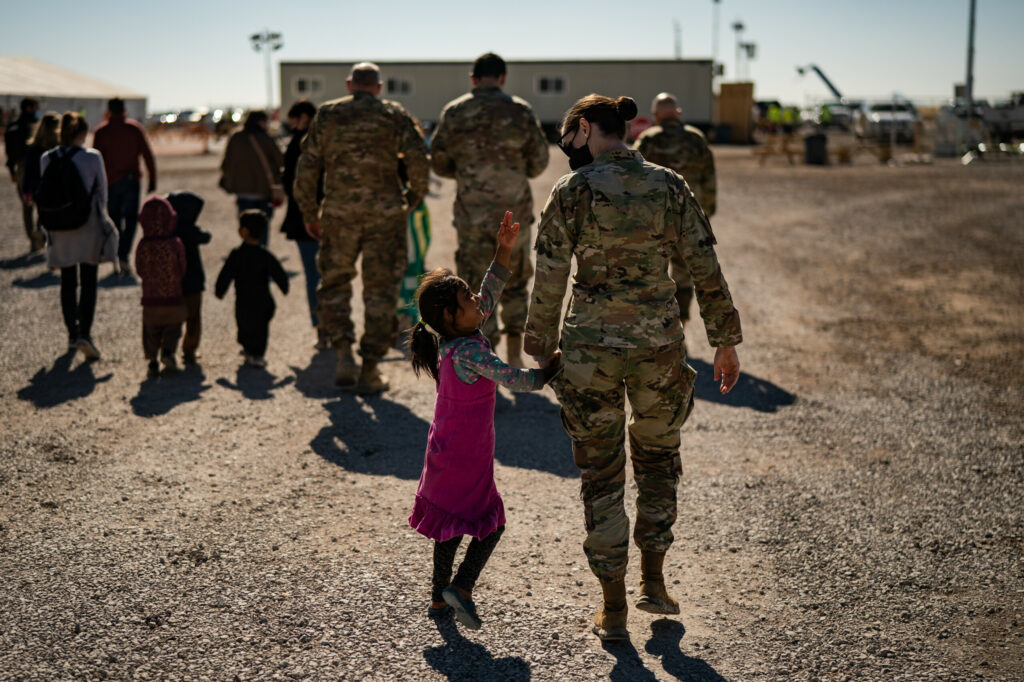1,450 Afghan kids were evacuated to the US without their parents. Some are ‘never going to be reunited with family’

A 17-year-old wakes up clutching his pillow and calling out his little brother’s name.And hundreds of children who remain in US government custody keep asking questions no one knows how to answer.They’re among the roughly 1,450 Afghan children who’ve been evacuated to the United States without their parents since August.Months after they arrived, it’s unclear when, how — or even if — some of their families will be able to reunite. The large number, first reported by Reuters and updated in recent figures CNN obtained from the Office of Refugee Resettlement, reveals a devastating reality of the evacuations and their aftermath.”It’s shocking…the idea that there are over 1,000 kids without their family right now, and that they’re potentially feeling alone and feeling scared,” says Dr. Sabrina Perrino, an Afghan American pediatrician in California who is hoping to become a foster parent to help.Many of the children tried to flee Afghanistan with their families but got separated in the chaos, advocates say. Some lost touch with their parents during the bombing at Kabul’s Hamid Karzai International Airport. And some of their parents didn’t survive the terror attack.Officials say the vast majority of the 1,450 children who were brought to the United States without their parents were quickly released to live with sponsors — including other family members they fled with or relatives who were already living in the United States. Some were reunited with family via an expedited screening process the Biden administration created for the Afghan children.But about 250 of the children remain in US government custody, according to statistics the Office of Refugee Resettlement recently provided to CNN. And most of those children, advocates say, have no family members to reunite with in the United States.Families and advocates who spoke with CNN said the children, already traumatized by what they went through in Afghanistan, now are living in limbo and desperate for answers about what’s next. Video calls with their parents are a lifelineTwo teenage boys sit on a sofa in a living room in Northern Virginia, looking lost.Ramin, 17, and Emal, 16, weren’t supposed to come to the United States without their parents. The close friends, who CNN is only identifying by their first names to protect their families’ safety, were neighbors in Kabul. Together, they tried to flee the country with their families in August. But they got separated in the airport attack. Only the boys and an uncle made it out. Their parents and siblings remained behind.When Ramin got to the United States in September, he was frantic, says Wida Amir, a board member of the Afghan-American Foundation who met him when she was helping translate for evacuees who’d recently arrived. “He was like, ‘Take me back — send me back,'” Amir recalls. Fear for his parents’ and siblings’ safety overwhelmed Ramin. Back in Kabul, he’d been so close with his 18-month-old little brother — they’d been spending almost 24 hours a day together — he couldn’t imagine living apart.One night, at the Virginia shelter where he and Emal were taken after their arrival, Ramin woke up clutching his pillow like a baby and calling his brother’s name.The children were wounded in the attack, which killed more than 170 people and injured at least 200 others. For months, family members had been afraid to tell them about their mother’s death. The children learned only recently, Ferishta says, and their devastation deepened. Mina keeps asking questions her aunt doesn’t know how to answer.Why were she and her brother flown to Germany after the attack and treated there? Why couldn’t her mom come, too? When will her dad arrive?”Every night she starts crying until she goes to sleep,” Ferishta says, “and sometimes it’s so hard for her to stop.”Ferishta does her best to comfort her. But now more than ever, Ferishta says, the children need their father by their side. They’ve already been through so much. They endured treatment for their injuries at Landstuhl hospital in Germany and Walter Reed Army Medical Center outside Washington. Then they spent 20 days at a Virginia shelter for unaccompanied minors while Ferishta frantically tried to get them out. And now, they’re grieving their mother’s death as they try to adjust to their new life in America.Ferishta says in many ways, they are the lucky ones. If the neighbor who helped them hadn’t gotten in touch with Mina and Faisal’s parents, their family would likely still be searching for them. The children’s names and birth dates are wrong on all the official documents issued during their journey — a problem she imagines is common for many of the Afghan children who were evacuated without their parents. That, she fears, means families searching for loved ones might not be able to find each other.Ferishta knows her family’s story is just one of many. Reuniting separated Afghan families should be the government’s first priority, she says.”All those children who made it here without parents,” she says, “I can feel them, every day that I am living with my niece and nephew, how much they are suffering.”CNN’s Jennifer Hansler contributed to this report.





